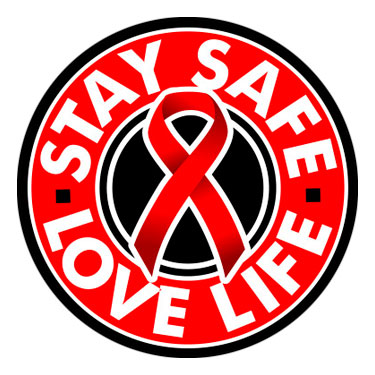Misconceptions About HIV and AIDS

For nearly 30 years, HIV (human immunodeficiency virus) and AIDS (acquired immunodeficiency syndrome) have been drowned in many myths and misconceptions. In some cases, these mistaken ideas have triggered the very behaviour’s that cause more people to become HIV-positive or even socially ostracize those with the virus. Although unanswered questions about HIV remain, researchers have learned a great deal and with that here are the top ten myths about HIV, along with the truth to dispute them.
1) Myth: I can get HIV by being around people who are HIV-positive.
The evidence shows that HIV is not spread through touch, tears, sweat, or saliva. You cannot catch HIV by:
- Breathing the same air as someone who is HIV-positive
- Touching a toilet seat or doorknob handle after an HIV-positive person
- Drinking from a water fountain
- Hugging, kissing, or shaking hands with someone who is HIV-positive
- Sharing eating utensils with an HIV-positive person
- Using exercise equipment at a gym
You can get it from infected blood, semen, vaginal fluid, or mother’s milk.
2) Myth: I don’t need to worry about becoming HIV positive — new drugs will keep me well.
FACT: Yes, antiretroviral drugs are improving and extending the lives of many people who are HIV-positive. However, many of these drugs are expensive and produce serious side effects. None yet provides a cure. Also, drug-resistant strains of HIV make treatment an increasing challenge.
3) Myth: I can get HIV from mosquitoes.
FACT: Because HIV is spread through blood, people have worried that biting or bloodsucking insects might spread HIV. Several studies, however, show no evidence to support this — even in areas with lots of mosquitoes and cases of HIV. When insects bite, they do not inject the blood of the person or animal they have last bitten. Also, HIV lives for only a short time inside an insect.
4) Myth: I’m HIV-positive – my life is over.
FACT: In the early years of the disease epidemic, the death rate from AIDS was extremely high. But today, antiretroviral drugs allow HIV-positive people — and even those with AIDS — to live much longer, normal, and productive lives. There have been and still are many people with the vis virus that have managed to live healthy and prosperous lives. It’s all about taking care of yourself and understanding the situation.
5) Myth: I’m straight and don’t use drugs so I won’t become HIV-positive.
FACT: Most men do become HIV-positive through sexual contact with other men or through injection drug use. However, about 16% of men and 78% of women become HIV-positive through heterosexual contact.
6) Myth: If I’m receiving treatment, I can’t spread the HIV virus.
FACT: When HIV treatments work well, they can reduce the amount of virus in your blood to a level so low that it doesn’t show up in blood tests. Research shows, however, that the virus is still “hiding” in other areas of the body. It is still essential to practice safe sex so you won’t make someone else become HIV-positive.
7) Myth: There is no need to use a condom during sexual contact if both partners already have HIV.
FACT: There are different strains of HIV. If a condom is not used during sexual contact, HIV-infected partners may exchange different types or strains of HIV. This can lead to re-infection, which will make the treatment of HIV infection more difficult. The new HIV strain may become more resistant to the current treatment taken, or cause the current treatment option to be ineffective.
8) Myth: HIV infections can be cured by having sex with a virgin.
FACT: There’s no cure for HIV/AIDS. However, HIV can be treated and a person who goes on treatment will be able to live a strong and productive life. By having unprotected sex with a virgin or anyone else for that matter, the person with HIV/AIDS can transmit the virus, which is irresponsible. In Singapore, it is against the law for someone with HIV/AIDS not to inform his or her partner of their risk of HIV infection.
9) Myth: HIV/AIDS cannot be transmitted during oral sex.
FACT: Transmission of HIV occurs when there is an exchange of body fluids (such as semen, vaginal fluids, breast milk, blood or pre-ejaculatory fluids), and this is possible during oral sex when there are open wounds. These include cuts, sores or abrasions in the mouth or gums, or infections in the throat or mouth that are inflamed. There may also be abrasions or sores on the penis or vagina. It is best to avoid oral sex if you have any cuts, sores or abrasions, or if you have a sexually transmitted infection. Otherwise, it is advisable to use condoms when engaging in oral sex.
10) Myth: Women who are HIV positive can’t and shouldn’t—have babies.
FACT: Though HIV can be transmitted from mother to child, it is completely possible and completely normal for positive mothers to give birth to happy, healthy babies. There a number of options available for HIV-positive women looking to have children.





